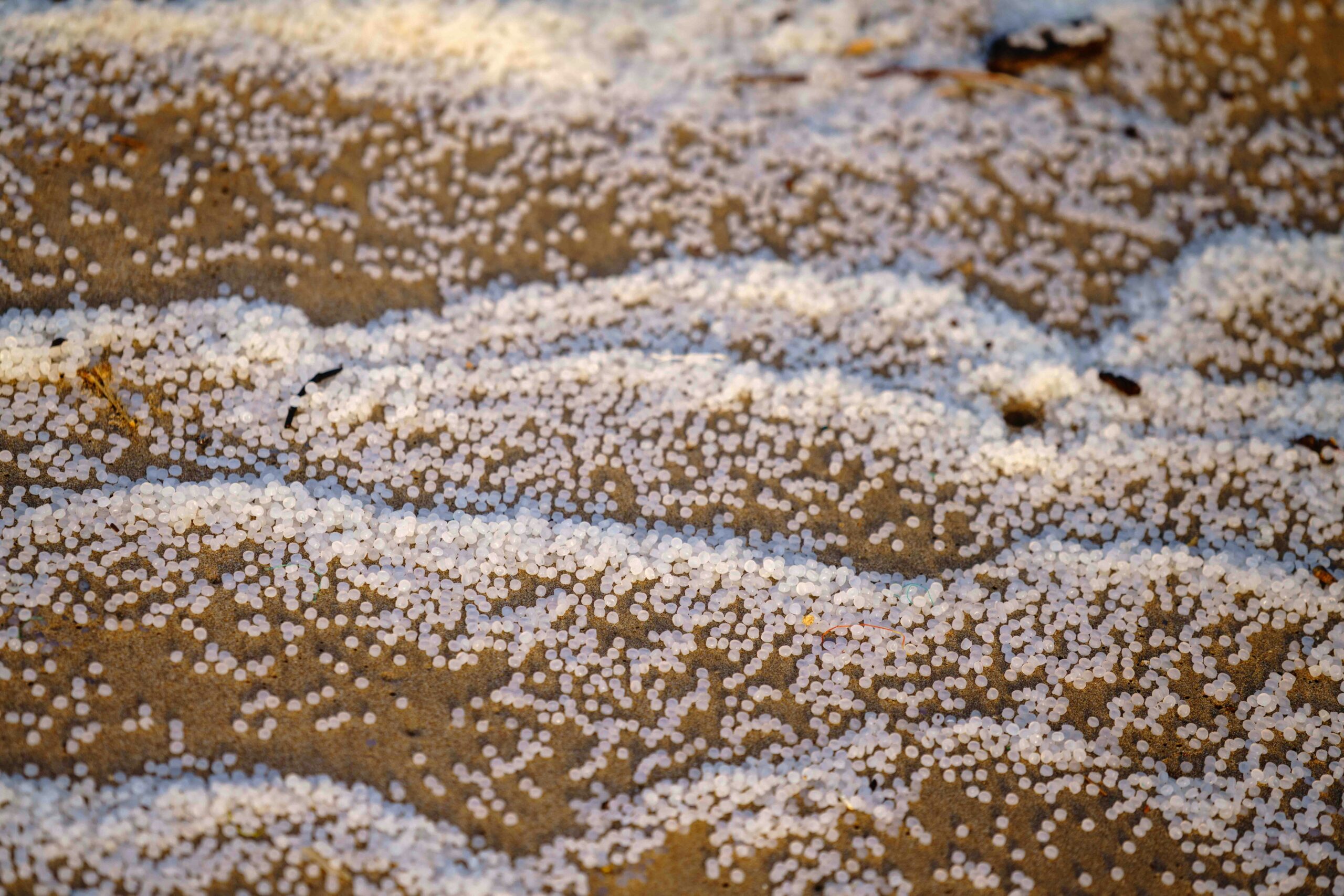Image description: Close up of nurdles washed up on sand. Photo by Sören Funk on Unsplash
Plastic nurdles – tiny pellets used by the plastics industry to manufacture larger products – have been found in 84% of the UK’s most important nature sites, according to environmental charity Fidra. The organisation discovered nurdles in 168 of 195 sites of special scientific interest (SSSIs), areas given extra protections due to the rare wildlife they harbour.
Nurdles have also been found in six national parks: Loch Lomond & the Trossachs, North York Moors, New Forest, Pembrokeshire Coast, Eryri (Snowdonia), and South Downs.
Supply Chain Failures
Nurdles are produced at sites across the UK and transported by land and sea to be melted down for plastic manufacturing. They enter the environment through mismanagement in the supply chain, most commonly through accidental spills. An estimated 53 billion nurdles could be lost into the UK environment annually.
In March, a collision between two ships off England’s east coast resulted in millions of nurdles washing up along the Lincolnshire and Norfolk coast, including in the internationally important conservation area known as ‘the Wash’. The initial clean-up removed over 10,000kg of plastic, but nurdles continue to wash ashore months later.
The pellets are particularly dangerous because they contain toxic chemicals, can be mistaken for food by animals, and break down into microplastics that enter the human food chain.
Biobeads Add to the Crisis
A separate but related problem is emerging with biobeads, the plastic beads used in sewage treatment. A new Guardian analysis revealed 15 sewage plants on England’s south coast use these contaminated plastic beads, yet the government and regulators keep no record of which water companies use them, where treatment works are located, or how many are in use.
Camber Sands in East Sussex suffered a spill of an estimated 650 million biobeads this month after a tank screen failure. The beads have contaminated beaches including Hastings and Dungeness, burying themselves in shingle and salt marshes. Southern Water has apologised and committed to paying for cleanup operations.
Campaigners are still finding beads from a major 2010 spill from the Newham sewage treatment works near Truro in Cornwall. In 2017, vandals slashed some sacks holding beads at a treatment centre, causing a spill on to Tregantle Beach, Whitsand Bay.
Biobeads contain high levels of polycyclic aromatic hydrocarbons, linked to cancer, as well as toxins including lead, antimony and bromine. Once in the sea, they attract algae, making them smell like food to marine creatures that then ingest them.
Call for Coordinated Action
Recent spills in the UK suggest more needs to be done to prevent nurdles and biobeads from getting into the environment.
Fidra’s senior project officer Megan Kirton said: “It is shocking to see nature reserves and protected areas around the UK impacted by plastic pellet pollution. These precious sanctuaries are being contaminated by preventable industrial pollution.”
Fidra is calling for governments to coordinate policy on nurdles and introduce legislation to enforce good practice and prevent supply chain spills. The charity also wants the International Maritime Organisation to introduce mandatory measures ensuring nurdles are safely transported and not lost at sea.
Campaigners are separately calling for water companies to phase out the beads. Beverley Coombes, of the plastic pollution nonprofit Strandliners, says “anything that can stop billions of these potentially toxic bio-beads from entering our rivers and seas has to be a step in the right direction.”
A South West Water spokesperson told the Guardian: “Only eight of our 655 wastewater treatment works use bio-beads, which are all fitted with two levels of robust containment measures and are inspected to ensure beads are kept within the treatment works. Decommissioning these plants is very costly as it requires the whole treatment process to be completely replaced. We are aiming to remove the bio-bead process at our remaining sites when they are required to be upgraded in the future.”
Wessex Water declined to comment but said none of its sites had released biobeads.
